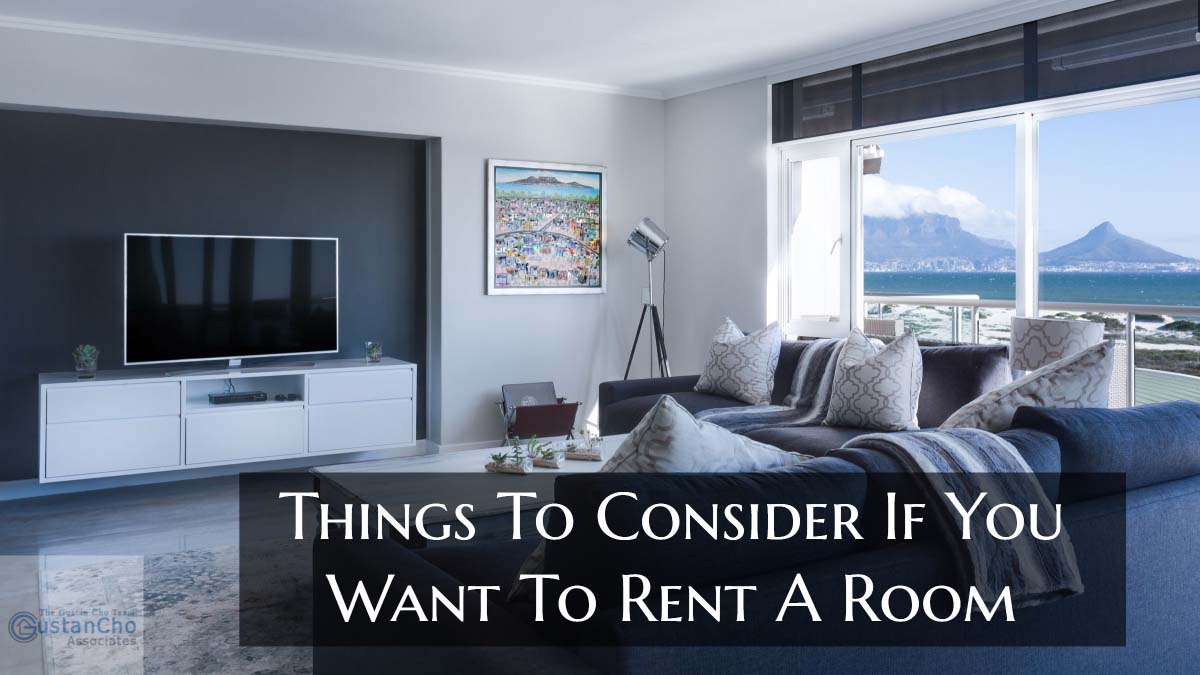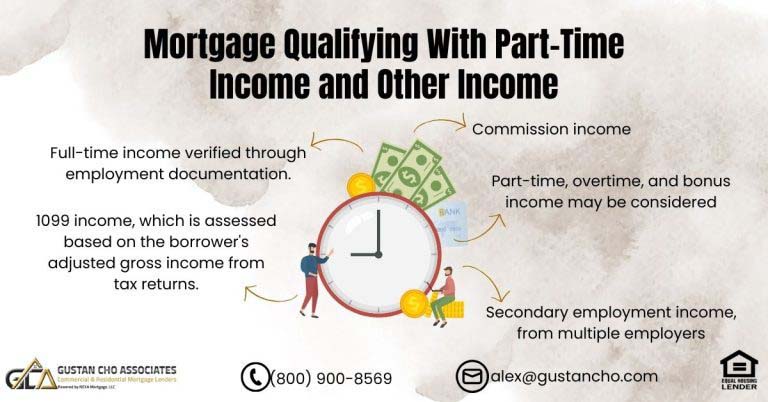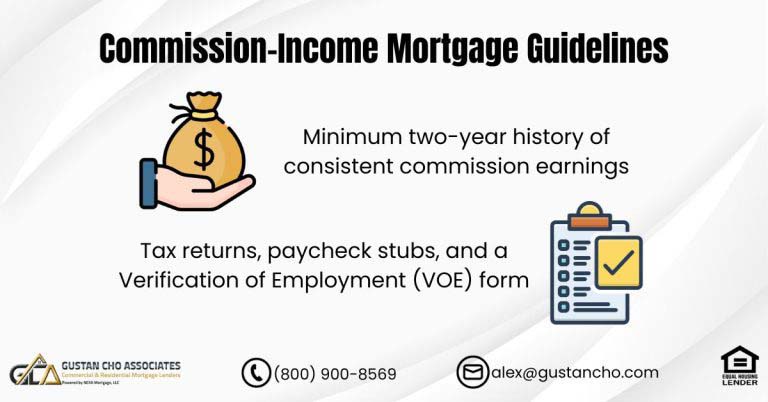This guide covers things to consider if you want to rent a room in your house. When you’re getting ready to rent a room, then you may be worried about this process. Many people have legitimate concerns about renting and with good reason. We’ve all heard horror stories about bad tenants and unsafe living conditions. The good news is that you don’t have to go into this situation unprepared. By taking these steps, you can avoid many of the more common problems. In the following paragraphs, we will cover things to consider if you want to rent a room in your house.
Things to Consider If You Want to Rent a Room in Your Home
Renting out a room in your house can boost your budget, but a few crucial details can make or break the process. Discover how to protect your property, set clear boundaries, and keep things running smoothly. Why Rent a Room in Your Home? John Strange, a senior loan officer at Gustan Cho Associates says the following about things to consider if you want to rent a room in your home:
Turning a spare bedroom into a source of income can lighten your household budget, help pay the mortgage, or use space that’s collecting dust. Still, it’s not just about snapping and posting a picture online.
In this post, you’ll find the main topics to weigh before listing that room, from local and clear house rules to your new duties as a landlord.
Thinking About Renting Out a Room in Your Home? Here’s What You Need to Know
Understand the legal, financial, and practical factors before turning your extra space into income.
Things to Consider if You Want To Rent a Room: Know Your Local Laws and Rules
Before you list your room for rent, learn your city’s or county’s rules. Zoning laws differ by place, and they can limit how you use your property. In some spots, you might need a permit or even a zoning change to rent a single room.
Here’s a quick list of what to check:
- Rental licenses: Some towns ask for a rental license before you can legally rent a room.
- Tenant rights: Each city or state can have different rules about tenant rights.
- Even a short-term renter can ask for a formal written lease in a few areas.
- Landlord-tenant laws: States set rules on security deposits, how to evict someone, notices, and similar topics.
Set Clear Rules and Boundaries
When you rent out a room in your home, it’s key to set clear rules and boundaries right away. Don’t depend on a handshake; a written agreement is a must in tenant-landlord relationships. A complete, written agreement covers rent, guests, noise levels, and cleaning duties. This plan can prevent arguments and confusion down the road.
Things to Consider if You Want To Rent a Room of Your Home: Here’s what to put into your rental agreement:
- Rent amount: Write down the rent the tenant will pay, when it’s due, and how they should pay it (e.g., by bank transfer, check, or cash).
- Utilities: Specify if the rent covers utilities like electricity, water, and internet, or if these costs will be extra.
- Be clear.
- Household rules: List your house rules. Include expectations about noise, guests, cleanliness, and use of shared areas.
- Lease Duration: Whether it’s a month-to-month or a longer fixed-term lease, make sure both you and the tenant agree on the rental’s length.
- Security deposit: Decide if you’ll charge a security deposit, and how much it will be.
- This money should be refundable, minus any costs for damage, when the lease ends.
- Helpful Tip: Use a room rental agreement template to make the process easier and ensure you include all the important details.
Protecting Your Privacy and Personal Space
Renting out a room means sharing your home, so it’s key to protect your privacy and personal space.
Try these simple tips:
- Mark off-limits spaces: Decide which areas you want to keep to yourself, like your bedroom, office, or specific bathrooms, and make that clear to your tenant.
- Clarify shared space rules: Set ground rules for using common areas like the kitchen, living room, and bathroom so everyone knows what’s expected.
- Give a private entrance: If you can, create a separate door for the rented room.
- This lets your tenant come and go without walking through your part of the house.
Need Help? Call us at 1-800-90-8569 or email us at alex@gustancho.com. Visit our online forum at GCA Forums at www.gcaforums.com or our website e at Gustan Cho Associates for tips on setting boundaries or crafting rental agreements!
Choosing the Right Tenant
Choosing the right tenant makes a big difference in how smoothly things go. A good screening process can keep you out of trouble.
Start with these key steps:
- Run a background check: Look into criminal records and any past evictions to make sure you’re renting to someone who will be responsible.
- Credit reports: Pull your tenant’s credit report to check their payment history and outstanding debts.
- A solid credit score suggests they will pay rent on time.
- Past landlords and bosses: Ask each applicant for contact info of past landlords and employers.
- Their responses can reveal how responsible and courteous the tenants are.
- Face-to-face meeting: Set up a quick in-person meeting.
- Chat about work habits, hobbies, and lifestyle.
- A friendly, open conversation can help you determine if the tenant will mesh well with your space.
Pricing the Rent
Choosing the right rent can feel like a balancing act. You want to cover your costs and make a profit, but you also want to find a tenant who can pay on time.
Try these tips:
- Compare listings: Check online rental sites for similar rooms in your neighborhood.
- This gives you a baseline for setting your price.
- Room features: If your room is furnished, has a private bath, or offers a private entrance, you can charge a little more.
- for these extra Utility costs: If you cover utilities like power, water, and the internet, add their average monthly costs to your rent figure to keep your budget in line.
Insurance and Liability
Your property and your wallet both need defense. Renters insurance covers your tenant’s stuff. Landlord insurance, however, shields the building itself and your liability.
Things to Consider if You Want To Rent a Room of Your Home: Keep this in mind:
- Landlord insurance: This policy covers your house, liability claims, and injuries in shared spaces.
- It’s your first line of defense.
- Homeowner’s insurance: Double-check your policy if you’re renting just one room,
- Some homeowner plans need an upgrade before you list a room for rent.
Renting Out a Room? We’ll Help You Navigate the Essentials
From lease agreements to tenant screening, get the knowledge you need to rent a room safely and profitably.
Handling Rent Collection and Payments
Make rent day easy and fast. Pick a system that’s both safe and simple:
- Automatic payments: Link your account for automatic transfers or use apps like Venmo.
- Money shows up on time ,and you avoid chasing checks.
- Late fees: Write a clear late-fee policy into the lease.
- Common fees are \$25 to \$50, but local laws may set the maximum you can charge.
- Communication: Communicate openly with your tenant about rent due dates what happens if it’s late, and anything else related to rent.
Things to Consider if You Want To Rent a Room of Your Home
Things to Consider if you Want to Rent a Room in Your Home
Renting a room in your home can be a great way to make extra money and use space you don’t need. At the same time, it means you need to take care of a few important details. By being clear about your rules, screening tenants carefully, and having the right legal papers, you can make the experience easy and enjoyable for you and your tenant.
Ready to Rent a Room? If you have questions about renting a room or want help with a rental agreement, Gustan Cho Associates is ready to help! Contact us today at Gustan Cho Associates for more info.
Things to Consider if You Want To Rent a Room: Prepare for Initial Costs
You’re going to pay the rent and possibly other fees each month, but you should also be prepared for initial costs. The cost of moving into a room can be high with one-time costs that you may not anticipate. For example, you may pay an application fee, a month’s rent for the deposit, and other potential fees. If you want to be completely prepared financially, it’s a good idea to have a couple month’s rent saved up in advance. This will provide you with a window. When you’re starting to look for flats to rent you should be prepared for initial fees.
Things to Consider if You Want To Rent a Room: Know the Long-Term Costs
Once you get into the room, you may be budgeting only around your rent payments, but there are likely going to be additional payments as well. Your rent probably only covers a part of your living costs. For example, most rentals don’t cover the cost of utilities. Depending on where you rent, some or all of your utilities may be included. Dale Elenteny, a senior mortgage loan originator at Gustan Cho Associates says the following about things to consider if you want to rent a room in your house.
Before you rent a room, ask for the costs of heat, gas, electricity, and internet. Include these amounts in your budget and then ask which utilities are included in your rent.
Your landlord may not be able to provide the exact numbers but should be able to give you an approximate idea. It’s also a good idea to ask a potential landlord what other costs are required for renting a room. Many landlords require that their tenants have renters insurance. This is not a large cost, but you’ll need to include this in your budget as well. Finally, although you may not need to include these costs in your rent, make sure that your budget includes rent-related costs and overall costs of living. This should include groceries, fuel, vacations, and other costs. Looking at your budget will give you an idea of what type of flat you can afford to rent.
Things to Consider if You Want To Rent a Room: Determine What You Need to Rent
Before you can actually rent a place, you’ll need to provide your potential landlord with specific documents. Landlords want to know that they are renting to tenants who can afford the cost of rent and will be respectful and reliable people. Documents may include pay stubs, a background check, and references. These are a few examples of commonly needed documents but this list is certainly not exclusive. You may need more documentation as well. Your rental application will have a list of documents that are needed. However, be proactive and make sure to have this information on hand before moving forward. For example, keep a few copies of a recent paystub. It’s also a good idea to ask a friend or coworkers if they would be willing to be referenced on an apartment application. If you’re renting in a competitive market, having this documentation can help you through the rental process.
Things to Consider if You Want To Rent a Room: Furnishing Your Apartment
If you’re going to be renting a place, you need to have some of your own furniture, dishes, and other amenities. Many people move into their own place and forget to have even the essential items. When you move in without a bed, for example, you may find that it’s much harder to live as an adult.
There are many things that you can live without but most people need a bed, couch, table, and chairs. You will also need towels and linens, cookware, dishware, and basic cleaning supplies. You may need additional items as well but you can probably get by for a period of time. You may want to write up a list of the items that you already have and use that as a starting point. Buying these items can seem expensive so you may be able to purchase them used. Many times, family members or friends will periodically get rid of extra furniture so ask for any items that may be harder to find on your own.
Things to Consider if You Want To Rent a Room: Know Your Lease Term
When you decide to rent, you’re going to need to sign up for a lease. This is a rental agreement that states how long you’re going to be renting. Most rental agreements are for 12 months although there are always exceptions. Your landlord may only be willing to rent for a pre-determined time, but you should consider how long you want in your lease. For example, if you’re only going to be in a specific location for 6months, finding a 6-month lease would be ideal.
Things to Consider if You Want To Rent a Room: Know Pet Policies
For many people, pets are not a concern. If you don’t have any pets at present, you likely won’t have to worry about pet policy, although you should always be aware of the policy. However, if you have any pets, make sure that you talk to landlords about your pet. Some landlords won’t allow any pets and some will allow only some pets. For example, a landlord may only rent to owners with cats or dogs under a certain weight. There will probably be additional pet fees as well for pets or even a monthly fee.
Plan for the location
Before you even start looking for an apartment, you’ll need to determine where you want to live. You may have a certain area that you need to live in. Your transportation options can also be determinants of where you can live. If you rely on public transportation, you may need to limit your search to spots that are close to buses or trains. If you want a commute that’s not very long, you probably will want to only search within a certain distance of your job. Make sure that you consider these areas before you search for an apartment. Review areas where you could or could not live to help narrow down your search.
Although moving into your own room can seem like a stressful project, a little planning can help to streamline your search. Many people find that they actually enjoy searching for their own place. You may find that the process is exciting as well but you’re going to have a better time by doing some planning ahead of time. Use this information to get ready for moving into your own place
Renting a Room for Extra Income? Here’s What You Need to Consider
Get practical advice on setting rental rates, screening tenants, and managing your space effectively.








